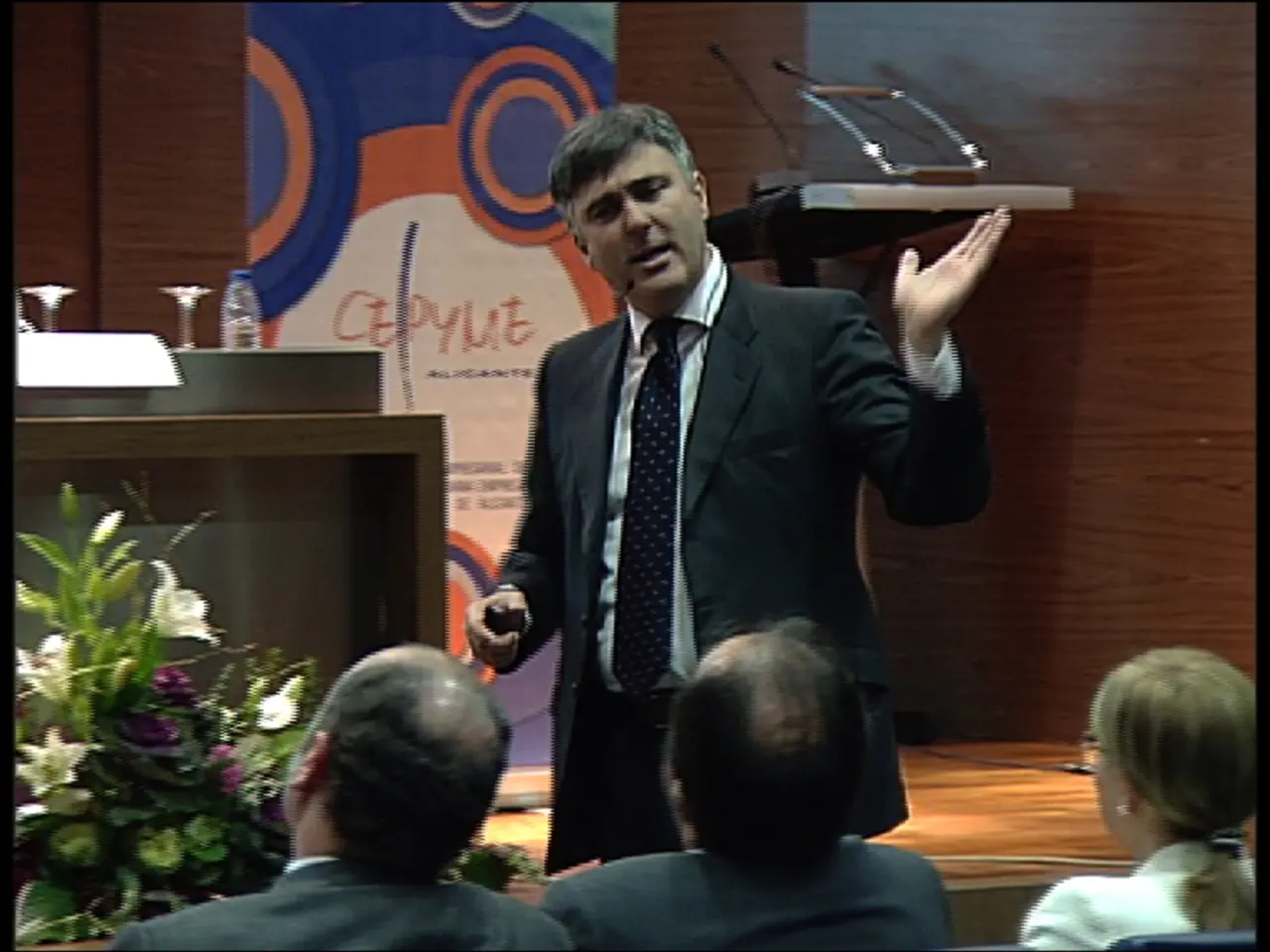Political Strategy of Texas Democrats and Impact of Trump's Presence in Washington D.C., according to the Politics Team's Report
In the heart of Texas politics, the two-week-long strategic exit by more than 50 Texas House Democrats to block the Republican-backed congressional redistricting map has come to an end. The Democrats returned to Austin, allowing the Texas House to regain quorum and paving the way for the GOP to pass the redistricting bill, House Bill 4, as planned.
The Democrats' goal was to stall the GOP-driven map, which they argue is a racist gerrymander designed to disadvantage minority communities and enhance Republican electoral chances ahead of the 2026 midterms. Despite drawing national attention and inspiring similar actions in other states, the redistricting plan still advanced once the Democrats returned.
Republican leaders, including Governor Greg Abbott, strongly criticized the Democrats’ action, describing it as abandoning their duties and responding with measures such as civil arrest warrants and attempts to declare some seats vacant. The special session ended early due to the walkout, and the legislative gridlock meant very little else could be accomplished during that period.
Meanwhile, in Washington D.C., the Trump administration has provided few details on where displaced homeless people should go, suggesting they take advantage of existing services or face fines or jail time. This action has sparked a culture battle and concerns about a war on facts, with implications for scientific conclusions about climate change and the efficacy of vaccines.
In another development, President Donald Trump announced his intention to host the annual Kennedy Center Honors ceremony in December, making him the first American president to do so. Trump claimed to be "98%" involved in choosing this year's honorees, which include Sylvester Stallone, Michael Crawford, George Strait, Gloria Gaynor, and Kiss.
However, critics argue that the administration's involvement in the Smithsonian museums risks distorting the reality of America's founding and history, citing the Founding Fathers' status as white, male, and largely property owners, including many slave owners. This has already led to the resignation of the director of the National Portrait Gallery and criticism of the American history and African American history museums.
Looking ahead, Republican leaders in Texas have promised to call special session after special session. Democrats are discussing other avenues to push back against the GOP's redistricting effort, including the courts, the legislative process, and collaboration with other states. There is no full consensus on an exit plan among the Texas Democrats. An aide to a Texas House Democrat breaking quorum revealed that the goal from the beginning was to bring national attention to the issue so that other states are ready to counter if Republicans really do this.
On the international front, Trump and Russian President Vladimir Putin are expected to hold a summit at a U.S. military base in Anchorage, Alaska. In a separate incident, the administration has issued an executive order titled "Restoring Truth and Sanity to American History," which critics claim is an assault on the nation's museums and historic parks.
As the political landscape continues to evolve, these events underscore the ongoing battles and debates shaping American politics and history.
- The debate over capital redistricting in Texas, with the Democrats attempting to stall a Republican-backed map they deem a 'racist gerrymander', has been a key aspect of recent politics, attracting national attention and fueling similar actions in other states.
- The Trump administration's involvement in policy-and-legislation, such as the executive order on 'Restoring Truth and Sanity to American History', has sparked controversy and criticism, with critics viewing it as an assault on the nation's museums and historic parks.
- In the realm of crime-and-justice, the Trump administration's approach towards displaced homeless people has drawn controversy, with the suggestion of fines or jail time causing concerns about a potential war on facts, particularly with implications for scientific conclusions about climate change and the efficacy of vaccines.





